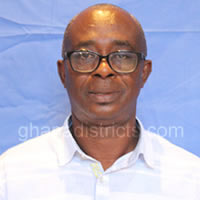Health is defined as the complete state of the mind and not the mere absence of diseases or infirmity. (WHO) Good health is critical to the socio-economic wellbeing and development of individuals. This section analyses the general framework under which health services are delivered in the Municipality. It concerns itself with the type(s) and distribution of health facilities, major diseases as well as ongoing programmes and projects in the health sector which are geared towards improving the wellbeing of the people in the district
Health Facilities
Management of health facilities in the Municipality is the responsibility of the Ghana Health Service (GHS), Missions, and the private sector. There are a total of eight (15) health facilities located in various parts of the Municipality. This is made up of one Government Hospital located at Goaso and 2 Industrial Clinics owned by Ayum Forest Products and Scan styles Limited at Mim, One Health Centre located at Akrodie, 4 Rural Clinics Located at Ayomso, Fawohoyeden, Asumura, and Ampenkro, two Community Health Planning Compounds at .Gyasikrom and Kojo Addai.
There are also 4 Private Maternity Homes at Goaso,Mim (2) at Kasapin. In all, there are 15 Health Institutions in the District this indicates a fairly distribution of health facilities in the Municipality as all the six Sub Structures have at least a type. Statistics at the Government Hospital indicates that a daily average Out Patient Department cases of 150 is recorded with Malaria recording 55 percent of all reported cases.
Accessibility
Generally about 85% of the people in the Municipality have access to healthcare services. Accessibility is further categorised into high and low. People with high access recorded 50 % while those with low access recorded 35%.Among the factors used to determine accessibility to healthcare services were Financial, Geographical and physical accessibility
The Municipality has a Doctor – patient Ratio of 1:23, 456 which is far above the national level of 1: 10,380, Nurse - Population Ratio of 1:8,529 Midwives -Population Ratio of 1:9,382, Medical Assistant- Population Ratio of 1:46,913 and Bed-Population Ratio of 1:506
In spite of the fact that there are quite a number of health facilities with varying categories and functions in the district, problems still remain with regard to the number of health personnel. The Municipality has one Medical Doctor, 14 Nurses, and forty-seven paramedics.
It has a doctor-patient ratio of 1:93,859 whilst the Nurse – Patient ratio is 1:6,705.
HIV/AIDS
The household survey indicates that 99% of the sampled population is aware of the HIV/AIDS pandemic and its consequences.
Family Planning
Family Planning services are provided at all the health facilities in the Municipality to assist couples in their reproductive stages. These services are designed to prevent unplanned pregnancies, space births, treat infertility and improve reproductive health. Some of the family methods and/or services available to the people include condom use, oral pills, injectables, IUD and Norplant, as well as natural family planning methods.
Family Planning Registrants for the period Jan-Jun; 2006 was 8634 (39.9%) as against 3401 (15.5%) in 2005. This was achieved inspite of the fact that the Municipal Hospital is not offering such service. The indications are that there are high unmet needs in this Municipality. There is the need to set up a Reproductive Health Clinic at Goaso Township as practicable.
NHIS
NATIONAL HEALTH INSURANCE SCHEME (NHIS)
The Asunafo North Municipal Assembly has established a District Mutual Health Insurance Scheme in an attempt to provide an opportunity to all registered persons to have unhindered, cash-free and efficient health services. Since its inception in the district, 7,598 people have been duly registered and issued with identification cards which qualify them to access health services free of charge.
Mobilization of membership is carried out through community sensitization, Radio announcements and discussions, durbars and visitation to identifiable groups. However, effective membership drive is constrained by widespread poverty within the municipality, politicization of the scheme and uncertainty about the benefits to be derived from joining the scheme.
Date Created : 11/10/2017 7:28:28 AM






 facebook
facebook twitter
twitter Youtube
Youtube TOLL FREE 0800 430 430
TOLL FREE 0800 430 430 +233 593 831 280
+233 593 831 280 GPS: GE-231-4383
GPS: GE-231-4383 info@ghanadistricts.com
info@ghanadistricts.com Box GP1044, Accra, Ghana
Box GP1044, Accra, Ghana